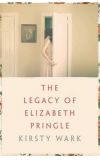
28 Mar 2014 00:19:14
Nonagenarian Elizabeth Pringle, a lifelong resident of the island of Arran, bequeaths her house to a virtual stranger. Years back Elizabeth was captivated by the sight of a holiday visitor from mainland Scotland, Anna Morrison, passing with a baby in a pram: a long-haired, blithe, hippyish mother, and a singing child. Anna, on impulse, asked Elizabeth to tell her if she was ever thinking of selling her home. Decades pass. Elizabeth never forgets the mother and baby – for reasons revealed late in the story.
As the novel opens, we meet Anna's child as a grown woman, Martha Morrison. Her mother now has dementia. Martha, burdened and forlorn, is drawn to Arran as to a magnet. What she finds there is a "feeling of knowing the ground beneath her". Arran is bountiful in other, less credible, ways. It affords a Polish carer for Anna, long-lost kin and a lover.
The plot of The Legacy of Elizabeth Pringle tends to clank and grind. Its romance elements are cliched and the sex scenes truly excruciating. Pacing feels ponderous in the middle sections. While Elizabeth's first-person narrative, a memoir composed just before her death, is deftly handled, the alternating third-person account from Martha's perspective can seem prolix. But something of great worth and beauty gleams through the narrative and haunts the reader with its imaginative truth.
That centre is Elizabeth herself as she recapitulates her singular life. Not much, in truth, has happened. She nearly married. She taught – "I was an exceptional teacher." Elizabeth lost a father at the end of the first world war, a lover in the second. She cherished her house, garden and friendships. She walked around Arran. And yet, in the deeper sense, everything has happened. Both ordinary and extraordinary, Elizabeth recollects and composes her own life. It's a portrait of a woman who lives with harrowing integrity.
In old age Elizabeth befriends two younger men, Niall and Saul, who both – rivalrously – mourn her passing. Her relationship with Saul, a Buddhist monk, is especially remarkable: "We must have made an odd sight – companions separated by more than fifty years, an elderly spinster in a tweed skirt and stout shoes and a tall weather-beaten Buddhist in his colourful garments, on occasion carrying a tall shepherd's crook with a fluttering multi-coloured pennant." Wark's presentation of a unique love unalloyed by sexuality is original and enthralling. What is possible in old age? Everything, it seems, while memory serves.
The novel ripples with unease at the mortality of memory. "Eventually," says Martha's mother, "the dark will cover me." But what Anna cannot recall, Arran restores. Martha inherits in Saul a kind of messenger from the dead: "It was you, wasn't it, in the pram?" The erotic scenes with Niall are less persuasive than Anna's convergence with Elizabeth. Her "heart hammered as it came to her that she and Elizabeth Pringle had existed in the same space ... Was Elizabeth somewhere deep in Martha's memory?"

